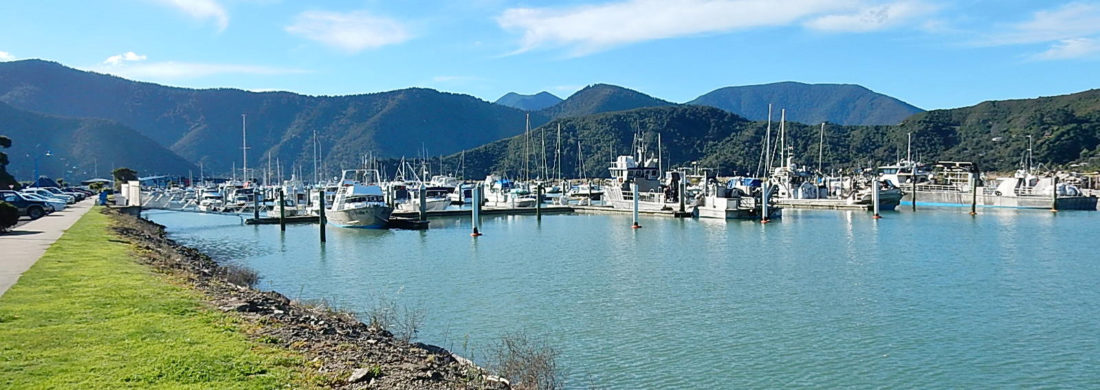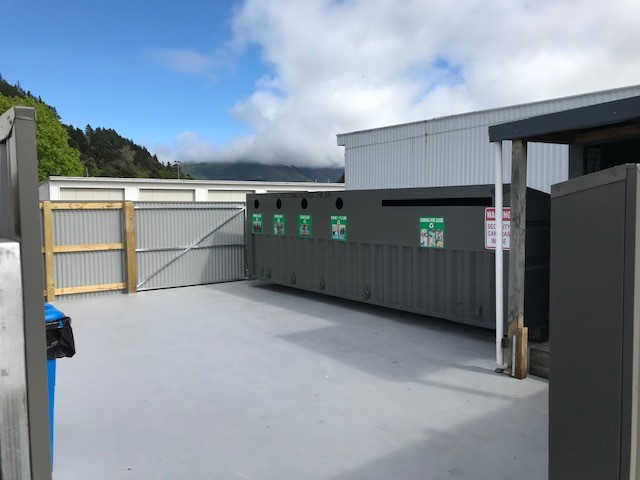
Grant keeps glass recycling shipshape at Havelock Marina

Port Marlborough has upped its sustainability efforts at the Havelock Marina with the instillation of a dedicated recycling hub, partly funded by a Glass Packaging Forum grant.
The grant, of $10,000, is in addition to investments made by Port Marlborough into a dedicated recycling hub at the marina, including a custom-built recycling container, access control and CCTV surveillance. The Forum’s grant covered the cost of the recycling container.
Port Marlborough’s Commercial and Marinas Manager Anouk Euzeby says prior to the recycling hub, the marina provided rubbish facilities in the form of 35 wheelie bins at the end of the jetties and launching ramp. Recycling was limited to waste oil and aluminium cans.
“We operate three marinas in Marlborough: Picton, Waikawa and Havelock, and are progressively extending our recycling capabilities in each marina. In December, we introduced our first glass recycling skip bin in Picton Marina. We have now established this comprehensive recycling facility in Havelock. There are additional costs for us to provide these facilities but ultimately it is about doing the right thing for our environment, and furthering our efforts towards becoming a sustainable port,” Anouk says.
The new recycling container can accept glass bottles and jars, plastic, cans, and paper and cardboard. “It’s the same kind of container which has been successfully used by the Marlborough District Council in its Rural Community Recycling programme,” Anouk says.
The Havelock Marina is the second largest in the region, providing 370 berths and storage for 175 trailer boats as well as providing berth, wharf and land-side facilities to service the aquaculture, tourism, forestry and barging operations in the Pelorus Sound.
Glass Packaging Forum Scheme Manager Dominic Salmon says funding projects which will result in new glass – which would not have otherwise been diverted from landfill – being recycled is a primary function of the Forum.
“Funding for grants like these come from the Forum’s Government-accredited product stewardship scheme. The Forum has over 100 member brands which contribute a voluntary levy based on the glass they put into market, which is used to fund projects which improve glass recycling in New Zealand,” he says.
Recycled glass, called cullet, goes to the country’s only glass bottle and jar manufacturer O-I New Zealand in Auckland where it is used to make new glass containers. The average recycled glass content for O-I New Zealand is 67 percent, Dominic says.
Using cullet in production reduces the need for virgin material – in fact, 1kg of recycled glass replaces 1.2kg of virgin materials. It also means the furnaces can run at a lower temperature so there are less emissions, Dominic says. According to the latest information from O-I, every 10 percent of recycled glass content reduces emissions by 5 percent and generates energy savings of approximately 3 percent.


